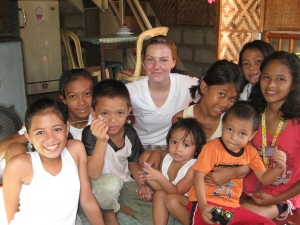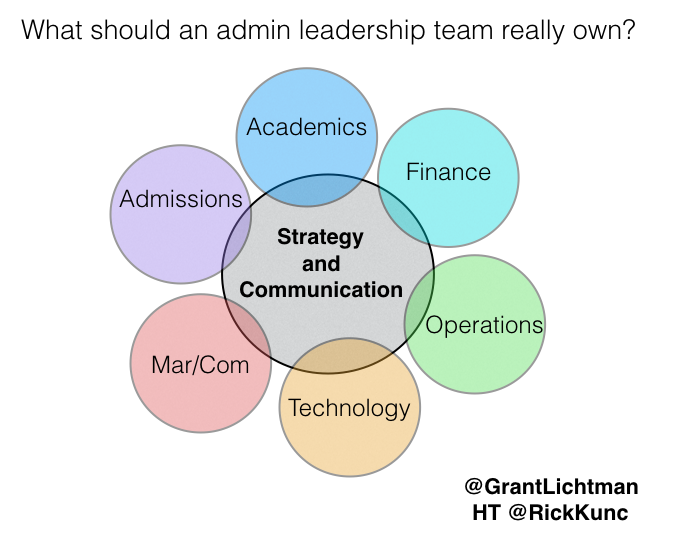If you followed my blog during the middle of February you had a chance to share in some of the remarkable learning experiences of a group of 14 high school students from Francis Parker School in San Diego on our two-week trip in the rural Philippines. My EdJourney last fall was about finding unique, innovative programs that are re-imagining the K-12 learning experience within the context of a rapidly changing world. The Parker Global Learning program is one that is breaking new ground in just how deeply and quickly we can immerse our students in the reality of that world…if we are just willing to try.
 A decade or more ago, global trips were largely sightseeing tours, summer jaunts through the palaces and museums of Europe. Gradually we let go that genre and global travel took on the goals of service to others and exploring ecosystems that we just cannot find at home. We took our students to see disappearing rain forests, raft wild rivers, and build schools or houses for those less fortunate than ourselves. This phase of global education was critical; we began to develop a goal of empathy, of getting our students to see the world through the eyes of “the other”.
A decade or more ago, global trips were largely sightseeing tours, summer jaunts through the palaces and museums of Europe. Gradually we let go that genre and global travel took on the goals of service to others and exploring ecosystems that we just cannot find at home. We took our students to see disappearing rain forests, raft wild rivers, and build schools or houses for those less fortunate than ourselves. This phase of global education was critical; we began to develop a goal of empathy, of getting our students to see the world through the eyes of “the other”.
When I wrote the first proposal for a global citizenship program at Francis Parker School in 2000, my focus was on building long-term, sustainable relationships, to become embedded in the global community as friends and partners, not as tourists or service providers. Parker now has overseas trips for middle and high school students in a number of countries, including South Africa, China, India, Colombia, Vietnam, Spain, Turkey, Guatemala, and my trip, to the Philippines.
Tom Crowley is the Director of Global Studies at Parker, in addition to chairing Upper School Social Studies, and teaching AP Economics and Sculpture. “The Global Studies Program at Parker engages students in authentic, experiential learning opportunities around the world. By building sustainable partnerships with schools, institutes and cultural organizations, we are creating long-lasting and meaningful relationships with our global community, ones that broaden our students’ perspectives and help them better understand America’s place in today’s world. We want our students to see firsthand the dynamic changes that are shaping the 21st Century. Our students see changes that call on them to engage as global citizens in the spirit of progressive educational practices.”
Each year Parker students go to the city of Barranquilla in the north of Colombia to work long days at a school in a severely underserved Afro-Colombian community. They teach English to the students and, of course, get great immersion in their own Spanish language proficiency. Parker returns to the same school every year. Students have delivered computers and raised the funds for a long-term endowment to pay for Internet access for the school, the only connection these young Colombians have to the world outside of their barrio. Last fall, Parker faculty made an extra trip: to witness the graduation of the first class of students they worked with almost seven years ago.
 In the Philippines, our goal is for the Parker students to, if just for a few days, share the experience of 3 billion people in the world: living on $2 a day. They live for six days in rural villages of very limited means, where the shower is a bucket of water and bed may be a mat on the floor. We have developed our own “NGO”, dispersing funds to support schools and day care centers, an orphanage, a home for sexually abused girls, and when a typhoon hit, to send in emergency supplies to our friends. The students no longer see themselves as the hope of their village hosts, the bringer of help or resources from the riches of America. They see that material wealth does not equal happiness, that in the villages it is possible to be happy without constant cell phone access and computers, that a family sitting down to eat together every night is something we have lost in the clutter of our busy lives.
In the Philippines, our goal is for the Parker students to, if just for a few days, share the experience of 3 billion people in the world: living on $2 a day. They live for six days in rural villages of very limited means, where the shower is a bucket of water and bed may be a mat on the floor. We have developed our own “NGO”, dispersing funds to support schools and day care centers, an orphanage, a home for sexually abused girls, and when a typhoon hit, to send in emergency supplies to our friends. The students no longer see themselves as the hope of their village hosts, the bringer of help or resources from the riches of America. They see that material wealth does not equal happiness, that in the villages it is possible to be happy without constant cell phone access and computers, that a family sitting down to eat together every night is something we have lost in the clutter of our busy lives.
This, then is the unique experience that I think we can only acquire if we build long-term trust and comfort with places and groups of people, if we forego the tours and bus rides, the yearning to “see” for a chance to stop and just “be”. I hope other schools think about this trade off as they build their global student experiences. It has worked for Parker; it has worked for their students.




Leave A Comment